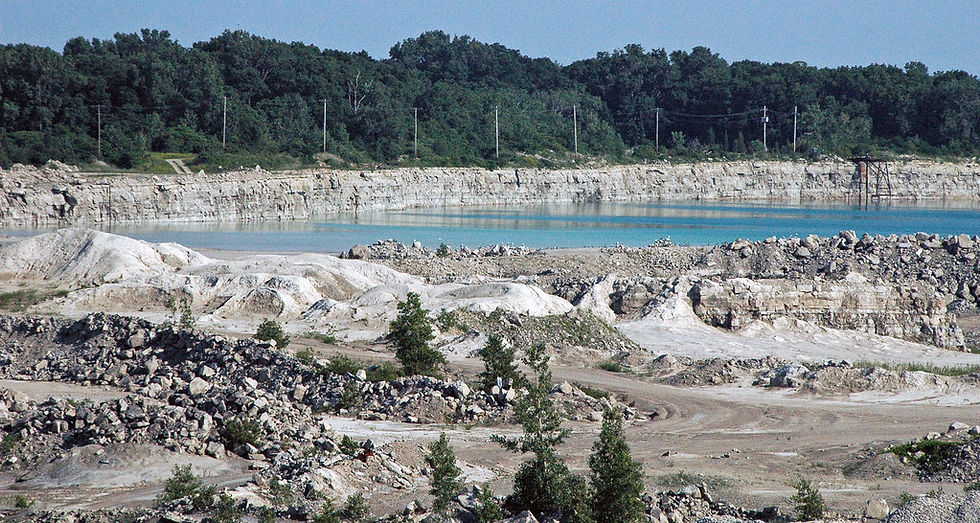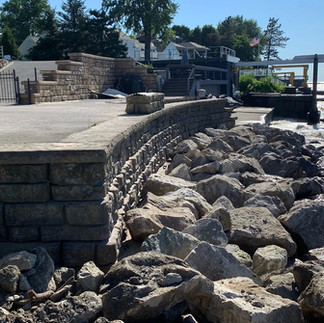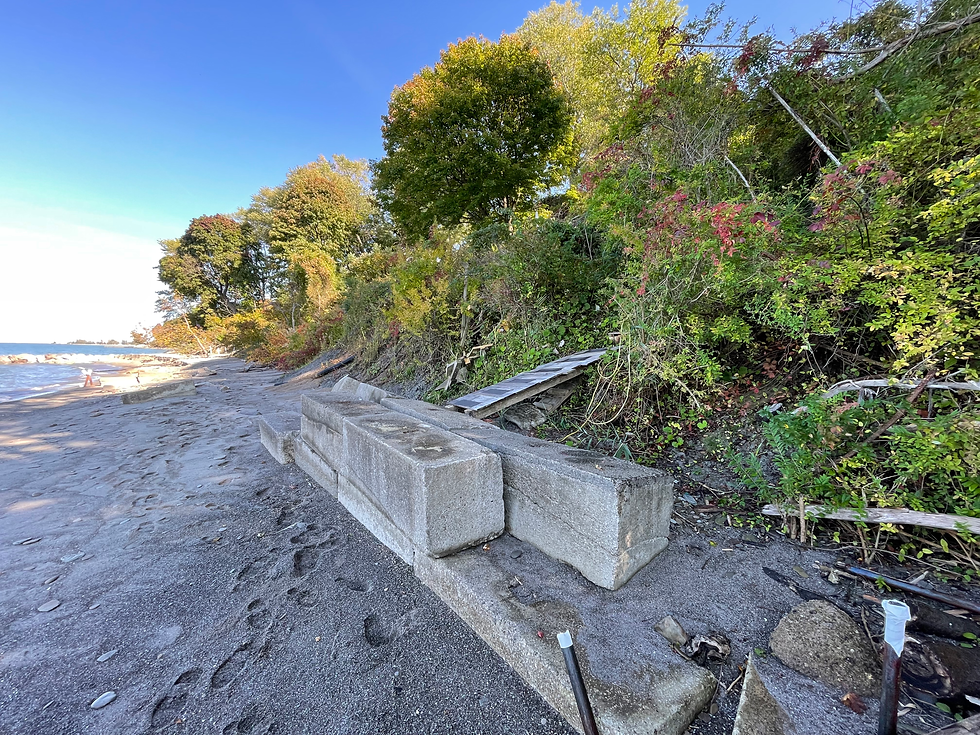Battling the Waves: Revetments as a Defense Against Lake Erie's Unfrozen Erosion in Northeast Ohio
- Demex_Marine

- Jan 17, 2024
- 2 min read
Northeast Ohio's relationship with Lake Erie has been undergoing a transformative journey, largely shaped by the impacts of climate change. In recent years, a notable shift has occurred with the diminishing frequency of Lake Erie's winter freeze. This absence of an icy shield has given rise to a significant challenge – shoreline erosion. In the face of this environmental threat, the implementation of revetments emerges as a promising solution to combat erosion and protect the delicate balance of our coastal landscapes.

The Unfrozen Challenge:
Traditionally, Lake Erie's winter freeze provided a protective barrier along the Northeast Ohio shoreline, safeguarding it against the erosive forces of wind and waves. However, the changing climate has disrupted this natural defense mechanism, leaving the shores vulnerable to erosion. As warmer temperatures become more prevalent, the lake's surface remains unfrozen, exposing the coastline to increased wave action and the potential loss of valuable land.
Understanding Revetments:
Revetments are shoreline protection structures designed to absorb and dissipate the energy of waves, thereby reducing erosion. These structures come in various forms, such as riprap, seawalls, and concrete blocks, each tailored to the specific needs of the shoreline they aim to protect. By acting as a buffer between the water and the land, revetments offer a line of defense against the relentless forces of erosion. We use locally sourced armor limestone rock from Sandusky, Ohio.

Our revetments can be installed either by barge or by land, depending on your property, our fleet of barges can be seen setting these revetments up and down the shores of Lake Erie. With lake levels on the rise for the last few years, revetments are a great way to ensure that our natural beaches will form again and be enjoyed for generations to come.
Still not convinced? We'll break down the 4 major components of how revetments play a crucial role in mitigating the impact on the shoreline. Here's how:
Wave Energy Dissipation:
Revetments effectively break the force of incoming waves, dispersing their energy before it reaches the shoreline. This lessens the erosive potential of the waves and helps maintain the stability of the land.
Stabilizing the Shoreline:
By providing a solid structure along the water's edge, revetments act as a stabilizing force. They reduce the likelihood of soil erosion, safeguarding coastal properties, infrastructure, and natural habitats.
Adaptability to Lake Dynamics:
Revetments can be designed and engineered to suit the specific characteristics of Lake Erie's shoreline. This adaptability ensures that the structures effectively address the challenges posed by the unfrozen lake conditions.
Sustainable Shoreline Management:
Implementing revetments aligns with sustainable shoreline management practices. These structures offer a durable and long-lasting solution, contributing to the resilience of the coastal environment in the face of ongoing climate changes.
As Northeast Ohio grapples with the repercussions of Lake Erie's diminishing winter freeze, the implementation of revetments emerges as a practical and effective strategy to combat shoreline erosion. By leveraging these protective structures, we can work towards preserving the beauty and functionality of our lakefronts, ensuring that they remain resilient and sustainable for generations to come. The adoption of revetments signifies a proactive step in adapting to the evolving dynamics of our environment and securing the future of our cherished coastal communities.
























Comments